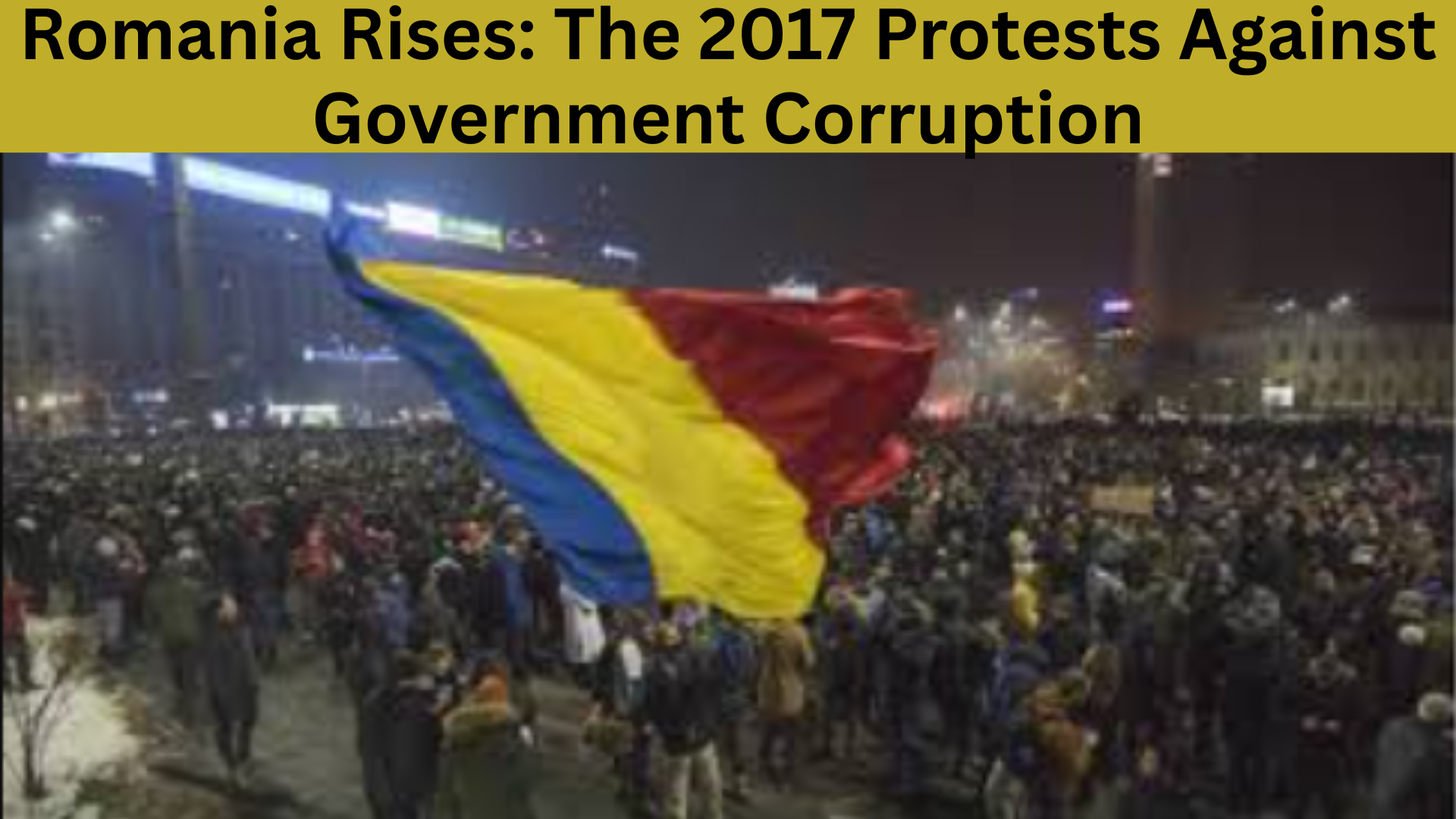In this post, we have discussed the reason for Romania Rises: The 2017 Protests Against Government Corruption and its aftermath.
Romania Rises: The 2017 Protests Against Government Corruption
In early 2017, Romania witnessed its largest public demonstrations since the fall of communism in 1989. Hundreds of thousands took to the streets to protest a government decree that threatened to undermine the country’s anti-corruption efforts.
The controversial law was overturned as a result of these protests, but they also served as a broader call for accountability and transparency in Romanian politics. In this post we are going to cover in detail the causes and consequences of Romania Rises: The 2017 Protests Against Government Corruption; read and know its global implications.
Causes of Romania 2017 Protests
Through an emergency decree issued on January 31, 2017, the Romanian government, led by the Social Democratic Party (PSD), decriminalized a number of corruption charges (OUG 13). Specifically, it stated that abuse of power would not be prohibited until the resulting financial loss exceeded approximately €44,000.

This order, according to the opposition, would effectively halt ongoing investigations and allow guilty officials to escape punishment. The administration justified the action on the grounds of prison overcrowding and the need to align laws with constitutional court rulings.
The ruling sparked widespread protests across the country, with many declaring the actions an attack on the rule of law and fearing a setback to the Eastern European country’s year-long anti-corruption campaign.
More Information: Get Here
Romania Rises: Public Outcry
Nearly two weeks before to the decree, social discontent started when the local media brought attention to the government’s plans to enact two emergency laws: one pertaining to jail pardons and the other to criminal code amendments. In a number of Romanian cities, citizens have since turned to the streets to call for the cessation of both initiatives and, ultimately, the resignation of the social democratic administration.
The 2017 protests in Romania were regarded as the largest since communism fell 27 years ago. On February 1, over 300,000 protesters participated in a statewide demonstration, with over 150,000 people gathering in Bucharest’s Victory Square.
The number of protests increased over the next few days, reaching a peak of 500,000 on February 5 with an estimated 500,000 people participating nationwide. These demonstrations were primarily nonviolent and included creative forms of protest, like the creation of a human EU flag in Bucharest, calls for the imprisonment of politicians, and cries of “Thieves.”
Government and Political Response
The order will be revoked, Prime Minister Sorin Grindeanu announced on February 4, 2017, in response to mounting criticism. Although protesters called for the resignation of key officials and assurances that anti-corruption measures would not be undermined in the future, the official withdrawal was made the next day.
The political fallout persisted even after it was repealed. Aware of the outcry over the directive, Justice Minister Florin Iordache resigned on February 9. Additionally, President Klaus Iohannis proposed and parliament approved a nationwide referendum to gauge public support for anti-corruption measures. However, a referendum never took place.
Romania 2017 Protests Legacy
The 2017 protests demonstrated Romanians’ commitment to democratic principles and the rule of law. They also underlined the effectiveness of civic engagement in influencing public policy. The incident demonstrated the need for ongoing attention to protect anti-corruption organizations and ensure public accountability, even though the immediate threat was avoided.
After the protests, political attempts to weaken judicial independence have hampered Romania’s anti-corruption efforts. Nonetheless, the demonstrations of 2017 remain a powerful example of public engagement and its role in creating a more transparent and just society.
Thanks a lot for reading this post on Romania Rises: The 2017 Protests Against Government Corruption, till the end.

